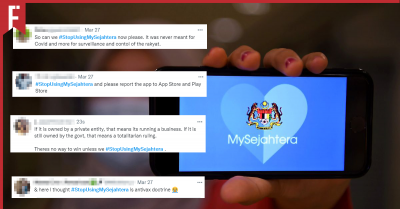
I’ll be honest; my probationary period went by so quickly that I don’t remember much of it. It was during a busy time in the agency so I was immediately given work to do and with it, an expectation to do well. However, I was pretty clueless at certain points of the probation and didn’t know what questions were okay to ask. It would’ve done me some good to Google my queries, so if you’re here, then congrats on not making the same mistake I did.
Surprisingly enough, 1 out of 5 people fail their probationary periods in our country. It may be due to an array of justifications so it definitely wouldn’t hurt to know as much as you can so you can avoid being the unfortunate statistic. You may or may not have some semblance of what your probation will ensue, so I’m going to break down some common assumptions in this article along with the reality of those situations.
Myth 1: Your Employer Can Terminate You For No Reason

As with any breakup, there has to be a reason behind it. The same goes for a probationer’s termination – the employer will have to give a just and rational reason as to why they have decided to terminate a probationary employee. It could be one or all of these three things: inefficiency, incompetence, and ineptitude.
If you feel like you were dismissed without a just reason, then you have the right to make a case against your former employer under Section 20 of the Industrial Relations Act (IRA) 1967. You should not have been dismissed because of matters you cannot change (like your race or religion) or a claim that you are underperforming despite the fact that you weren’t trained properly.
That being said, it’d be good practice if employers were to give probationers a heads-up of any problems with performance or work ethic. These warnings should be documented and signed and probationers should be allowed a chance to improve based on the feedback, even if it means extending the probation period.
Myth 2: You’re Immediately Confirmed After Your Probation Period Ends

Unfortunately, we don’t practise auto-confirmation here. If you want to be sure you’ve been confirmed, then you’ll have to ask.
Legally, there’s no specific minimum or maximum duration when it comes to a probation period, but common practice of most (if not all) companies has been about 3-6 months. Depending on the period stated in your contract, you are considered a probationary worker for that duration and will remain on probation until you receive a formal notice of confirmation i.e. a physical letter. (It could also be until you receive a notice of termination, but let’s not go there)
There is an exception, though. If your employer starts to treat you like a confirmed employee – like providing you the same benefits as your confirmed colleagues – then it can be assumed that you’ve been successfully confirmed. However, before you break out in celebration, it’s always best to know for sure via physical evidence.
Myth 3: You’re Not Entitled To Any Rights During Your Probation Period

Good news, this ain’t true. You do have some rights, albeit not the many benefits confirmed employees get to enjoy.
Typically, you will be entitled to a shorter notice period, no paid leaves (you’re still able to take them, but they’ll be deducted from your salary), and less to no medical fee coverage.
Don’t worry though, as probationers are required by law to be paid a minimum wage and be allowed a day off on public holidays. You also have the right to receive a payslip and are subject to working time laws. According to Section 60A (1)(iii) and (3) of the IRA, you are allowed to work overtime but your hours cannot exceed 48 hours a week without a valid reason from your employer.
Hard Work Will Pay Off…Right?
As with everything else, your outcome is what you make of it. If you want to ace that probation, then be sure to show that you’re serious about your job. Show up on time, contribute to brainstorms and company activities, and don’t take leaves unless necessary – just to name a few.
If you’re currently carrying out your probation period, all the best to you! To those who are about to embark on this journey, just remember to read your contract thoroughly. Pore over every detail and don’t be afraid to ask questions if there’s something you’re unsure about. The more you know, the better!








